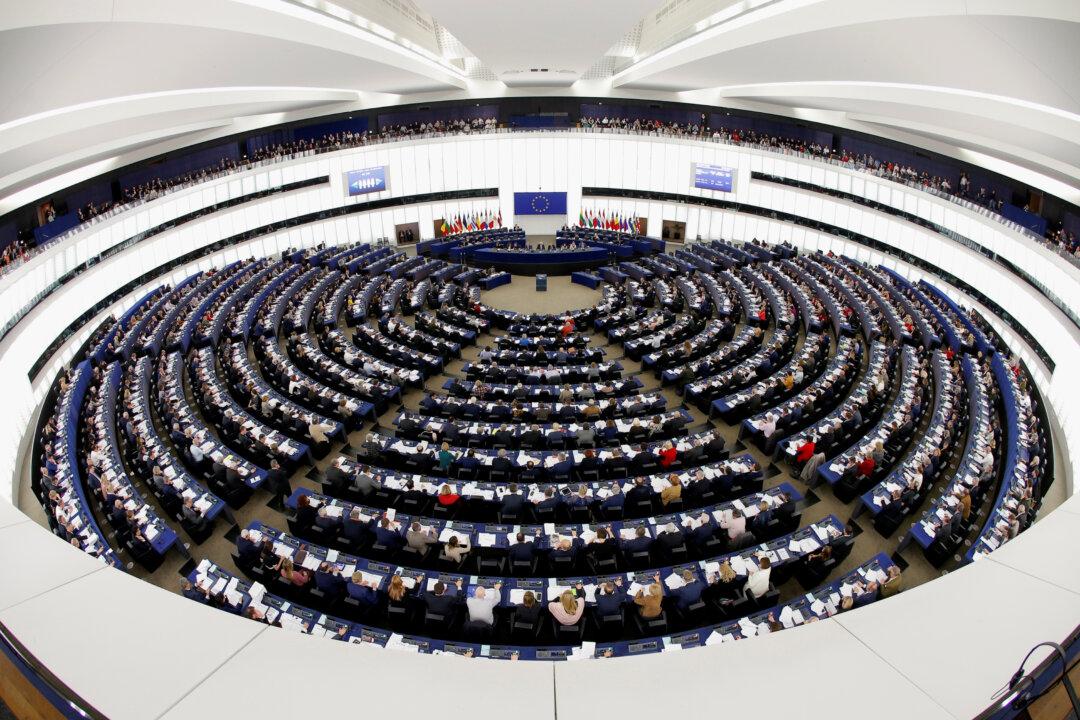STRASBOURG, France—EU lawmakers overwhelmingly backed a far-reaching system on Feb. 14 to coordinate scrutiny of foreign investments, notably from China, to protect strategic technologies and infrastructure in Europe.
The vote was 500 in favor, 49 against and 56 abstaining.





